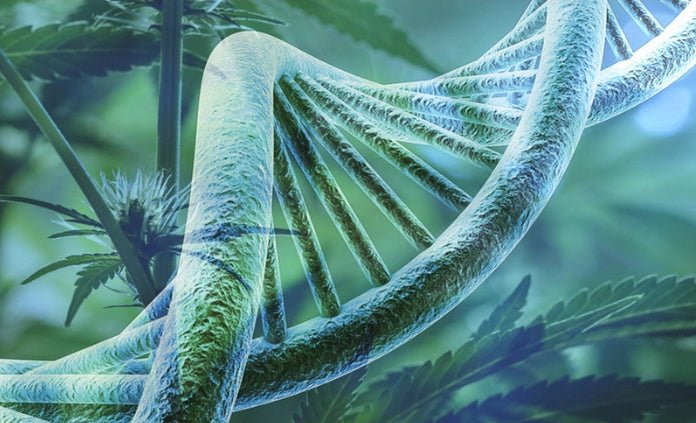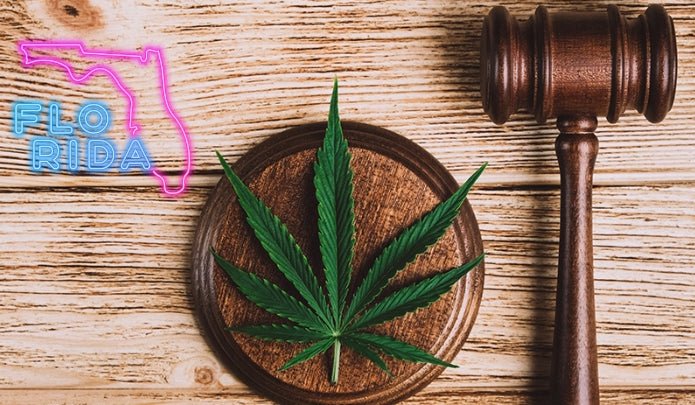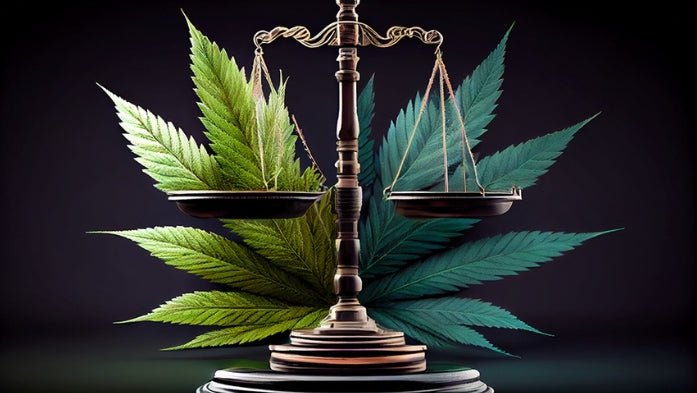A biotechnology firm created the new breed to reduce the amount of psychoactive cannabinoids produced in traditional hemp plants.

There are times when technology and well-intentioned humans achieve a scientific breakthrough that no one was really seeking. Such is the case with a recent development in the world of genetically modified hemp. As first reported by Marijuana Moment, the U.S. Department of Agriculture (USDA) just announced its approval of a new hemp plant genetically altered to produce lower levels of the cannabinoids THC and cannabichromene (CBC).
Growing Together Research, a biotechnology firm headquartered in Fort Wayne, Indiana, submitted the genetically modified hemp plant for review. Earlier this year, the company issued a press release announcing it had successfully achieved "the first known stable transformation and regeneration of multiple THC-free hemp cultivars." The company later announced in June its intention to also work on increasing THC levels in cannabis plants.
The USDA's Animal and Plant Health Inspection Service (APHIS) said in a notice last week, "We reviewed the modified hemp plant to determine whether it posed an increased plant pest risk as compared to cultivated hemp. APHIS found this modified hemp is unlikely to pose an increased plant pest risk compared to other cultivated hemp."
"We reviewed the modified hemp plant to determine whether it posed an increased plant pest risk as compared to cultivated hemp. APHIS found this modified hemp is unlikely to pose an increased plant pest risk compared to other cultivated hemp."
- Notice Issued by USDA's Animal and Plant Health Inspection Service
In its request for review by the USDA, the company stated the modifications are designed to make the plants THC and CBC-free while also boosting their resistance to the herbicide bialaphos. It also said the new hemp plants' genes came from various donor organisms, including bacteria, plants, a virus and at least one artificial genetic sequence.
Growing Together Research concluded its request by stating that it believes the desired resistance to the herbicide "is not expected to result in any other material changes to metabolism, physiology or development of the plant."
The USDA's APHIS review centered on the new hemp plant's potential "plant pest risk." According to the regulatory agency, the process "examines the plant pests and diseases that are known to be associated with a commodity, identifies those pests that are likely to remain on the commodity upon importation into the United States, and evaluates the mitigations that may be required to avoid, reduce, or eliminate the risk of pest introduction into the United States."
Ultimately, the USDA concluded the new variant did not pose a significant plant pest risk and said it "may be safely grown and bred in the United States." The agency also agreed that the modified hemp plant is "not subject to the regulations under 7 CFR part 340," which regulates the movement of genetically modified organisms. However, down the road, the plant may be subject to other regulatory guidelines, such as permitting or quarantine requirements.
This decision is just the latest in a series of pro-hemp initiatives and announcements on the part of the USDA since the passage of the 2018 Farm Bill, which legalized the cultivation and sale of hemp and hemp-derived products.
Earlier this year, the agency partnered with the Pennsylvania Department of Agriculture to host an educational event for farmers focusing on cultivating cannabis in a bio-based economy. In addition, the USDA also promoted an Indiana-based hemp farm's success in maximizing its high-quality CBD oil output through financial and technical assistance provided by the agency.
The regulatory body also renamed one of its trade advisory committees to feature hemp more prominently among a select group of specialty crops. Likewise, it doubled the number of hemp industry representatives on its federal trade advisory panels, reflecting the increased importance of hemp and its sister plant, cannabis, as valuable agricultural commodities.
However, most of its efforts, like the approval of Growing Together Research's genetically altered hemp plant, are only a little more than fodder for public relations press releases and the acquisition of cheap political points among the predominantly uneducated public.
The hemp industry is still very much in peril, with attacks coming from all sides, including state crackdowns on hemp-derived cannabinoids (delta-8 THC), intense lobbying by corporate cannabis interests to effectively eliminate the hemp industry and attempts by several congressional lawmakers to rewrite the 2023 Farm Bill making it much less hemp-friendly.
What the hemp industry needs from the USDA and other regulatory agencies is clear and effective guidelines for the cultivation of hemp, the manufacture of safe and compliant hemp-based products, most notably CBD, and more support for the small to medium-sized businesses comprising the majority of companies that make up the fragile but feisty hemp industry.
The hemp plant is not the problem. The greed of a handful of ill-intentioned mega corporations and unscrupulous politicians is the real albatross weighing down the market. Remove them and let the hard-working men and women in hemp do their jobs. The rest will take care of itself.







































